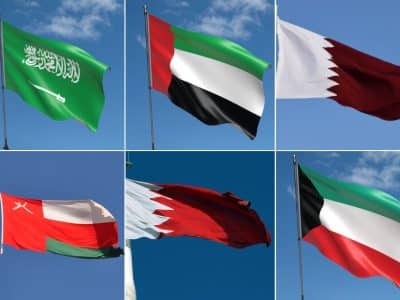Like any good survey, the 2013 ASDA’A Burson-Marstellar Arab Youth Survey raises more questions than answers. Finding out the opinions, fears, worries and hopes of the Arab youth is not only fascinating but essential, and it’s why we have devoted a large chunk of this week’s magazine to the topic.
First the good news: the headline finding of this survey is that the Arab youth generally feel “their best days are ahead of them.” Amidst so much conflict and strife, it is wonderful to see the optimism of the region’s youth. So much so, even HH Sheikh Mohammed Bin Rashid Al Maktoum, Ruler of Dubai, took time to tweet this (and the equally impressive fact that the UAE is seen a role model nation).
But delve deeper and you find the questions that I am not sure anyone has answers to. One in particular: when asked which country outside the MENA region they (Arab youths) see as most favourable, France scored 44%. It came top. Just as it did last year.
Put another way, given the choice, most youths in the Arab world would like to live in the UAE. But if they had to live somewhere outside the Arab world, they would pick France. Only 32% fancy the UK (compared to 43 percent two years ago), and just 30 percent think Obama’s America is the place to be (again, compared to 41 percent two years ago).
So France it is. Have you been there? I have, many times. Paris is in my view, the greatest city in the world. It’s well worth a visit, though make sure you leave your wallet in the hotel or it will get nicked. Anyway, I digress.
France is also arguably the welfare capital of the world next to Scandinavia’s Sweden, Denmark and Norway, where many people pay 50 percent of their income in taxes. The very first article in the French Code of Social Security is about social protection. France has been doing this for years, with even Napoleon III getting in on the act by creating the foundations for a welfare system. Today, France leads the way when it comes to free healthcare, generous pensions, free education, family insurance and unemployment insurance (that often sees anyone losing their job able to continue receiving 35 percent of their previous salary).
On the face of it, this all sounds very attractive. Governments in this part of the world, some of whom already employ a credible welfare system of sorts, may be tempted to look at this as the answer to all questions: let’s all be more like France, after all, that’s where all our youth seem to want to live.
That would of course, be a huge mistake. France’s rigid labour laws make it hugely uncompetitive. The labour costs per hour are $44, that’s 13 percent more than for example Germany. These costs have risen 19 percent in the last decade while most countries in the euro zone has seen their costs remain the same. It all helps explain why French companies have seen their operating margins shrink by 40 percent in the last decade. It explains why France will be lucky to see 0.4 percent GDP growth this year, and why the country is staring at an unemployment rate of over 10 percent.
Personally, I believe in some of the fundamental principles of the welfare system, particularly in health and education. If I didn’t get the free university education I did 30 years ago, I could have never afforded to pay for one. I can fully see, why from the outside, France is so highly regarded. But it is also an example of what happens when you get the balance so horribly wrong.
Anil Bhoyrul is the Editorial Director of Arabian Business.








